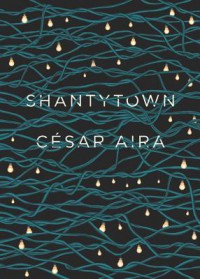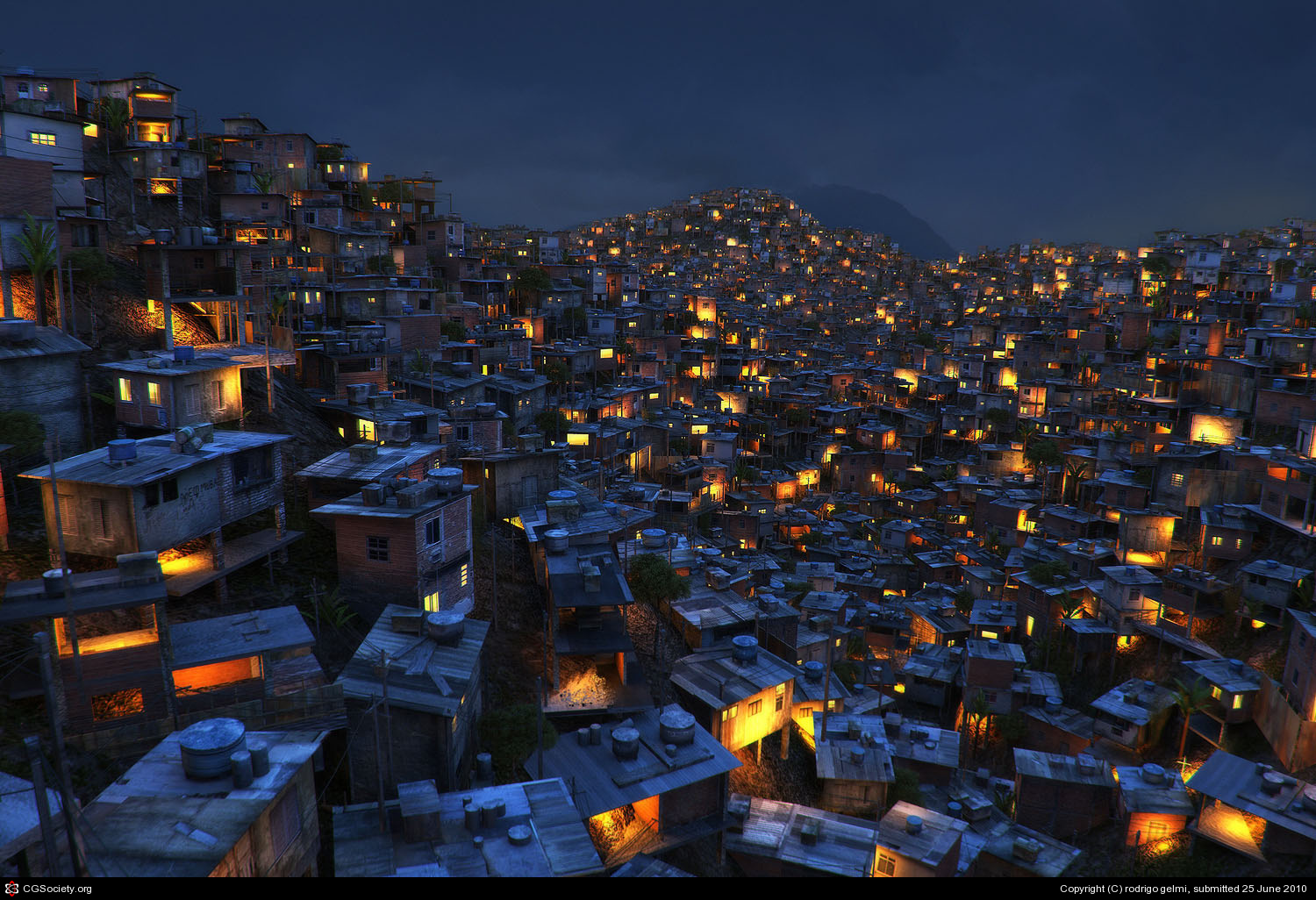Currently reading
By the Lights of a Silvery Slum: A Fairy Tale

Briefly: In an interview, César Aira talks, among numerous subjects, of his preference for the fairy tale form and the combination of the surreal with the hyper-real. Shantytown captures those interests and runs with them. A gentle giant (vulnerable, simple, thoughtful), villains of varying degrees of evil (corruption), danger (murder, the drug trade, a torrential storm), a strange locale—the glowing, gemlike shantytown where so much of the story points toward; the good guys live happily ever after, the bad guys get what’s coming to them, and the really bad: “The only conclusion to be drawn from this or any other adventure was to let it be a lesson…or not. That was the sole and dubious privilege of the middle class; not to learn from experience, to go on making mistakes covered unconditionally by maternal insurance.” Oh, I forgot to mention the Evil Mother previously. Some readers may find the surreal less apparent than in other Aira novellas, while the hyper-real (man, that storm) rides roughshod over what appears to be intricate plotting with twists, turns, coincidences and luck. Aira’s characteristic metafictional approach is on display, but in a less prominent way than in previous novellas: “Jessica turned her head with a look of shock and horror, as if to say: ‘This is too much! If there’s one more twist in the plot…’”Right book at the right time for me.
La Entrevista (the Interview—in Spanish with subtitles): http://channel.louisiana.dk/video/c%C3%A9sar-aira-my-ideal-fairy-tale
A shantytown at night: 
A passage:
One of the judge’s most famous and frequently misunderstood declarations was that her only aim in life was to bequeath to the world, at the end of her brief sojourn, something it had not possessed before. It sounded like a throwaway line, the kind of thing that people trot out when they’re stuck for something to say, but it was more subtle than that. For a start, it’s not so simple to bring something new into the world: it’s a bit like bringing a rock back from the moon, except that these days the moon is really part of the world. And she wasn’t referring to a combination of pre-existing elements or a rearrangement, but to something really new, a new element, which could enter into old combinations, if anyone so desired. This was a strange ambition for a judge; justice is like a zero-sum game; you could say that its mission, the essence of what it does, is transform a situation without affecting the overall number of elements. Adding something new is more like what art does.
A song: https://www.youtube.com/watch?v=A1UFqXbD7sI
An End.
 7
7







